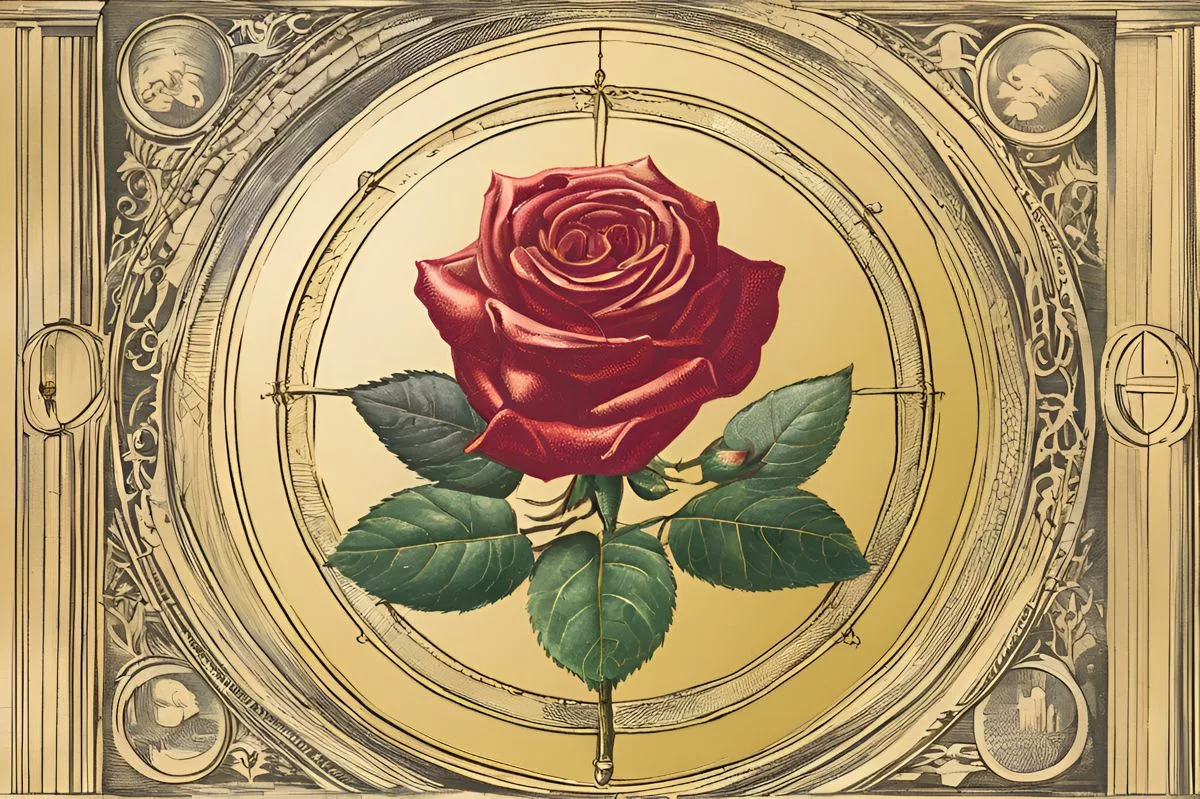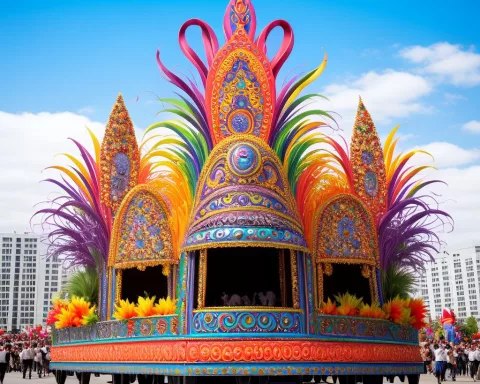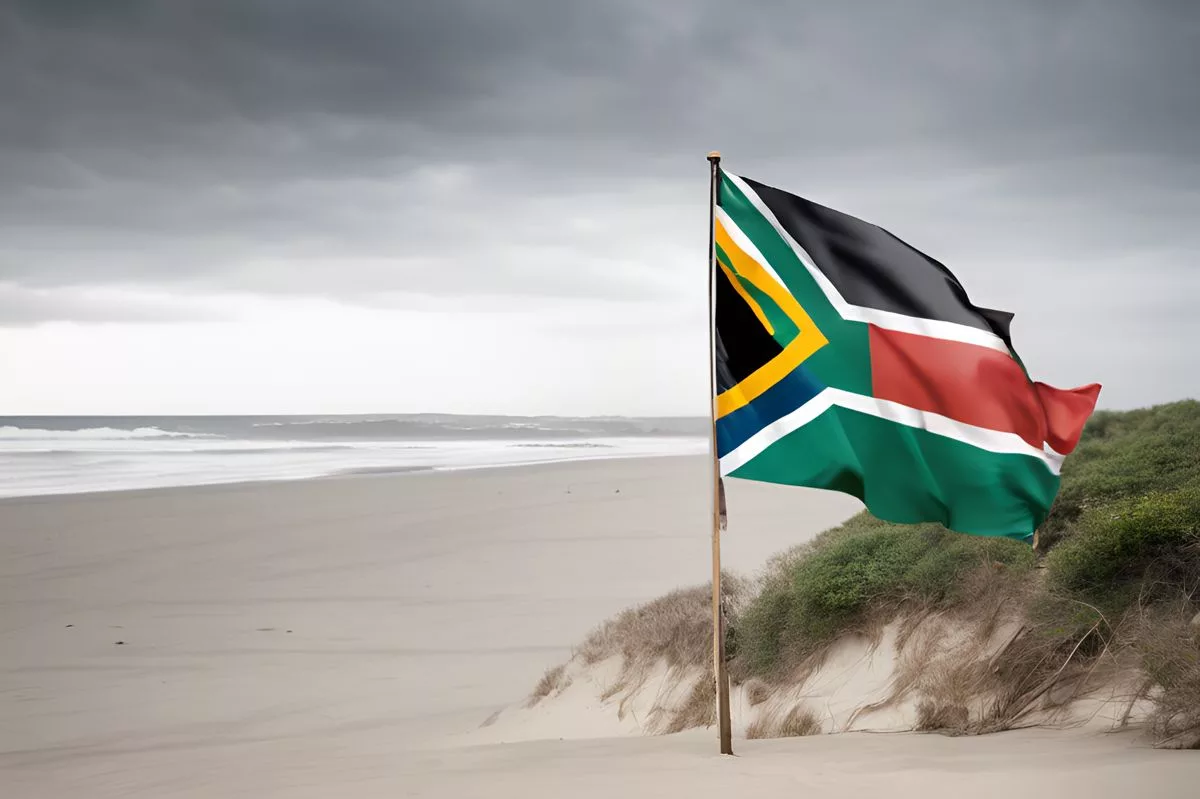The 2024 Paris Olympics opening ceremony faced controversy when a performance that resembled the Last Supper was perceived as disrespectful. Critics felt it was a ‘woke’ caricature and the ceremony was removed from all Olympics’ social media platforms. The event highlighted the balance between artistic freedom and cultural sensitivity, reminding us of the subjective nature of art and public perception. Despite the criticism, the ceremony left a lasting impression with a bold and audacious display that transcended the realm of sports alone.
The 2024 Paris Olympics opening ceremony sparked worldwide controversy due to a performance that mimicked the Last Supper. Despite being intended as a celebration of diversity and creativity, critics felt it was a ‘woke’ caricature. The controversy highlighted the balance between artistic freedom and cultural sensitivity, reminding us of the subjective nature of art and public perception. The ceremony left a lasting impression, with a bold and audacious display that transcended the realm of sports alone.
The Opening Night: Mixed Reactions to the Ceremony
The 2024 Paris Olympics kicked off amid a storm of controversy, triggered by an opening ceremony that elicited worldwide disgruntlement. The event, meant to be a grand showcase of unity and sportsmanship, was perceived by certain spectators as a disrespectful spoof. This prompted such an uproar that the official recording of the spectacle was scrubbed from all Olympics’ social media platforms.
The evening intended to signal the beginning of the games was filled with eager anticipation from spectators. However, when the ceremony took off, it was not a harmonious celebration that unfolded but rather a scene of disagreement and disapproval. The bone of contention centered around a performance that eerily mirrored the Last Supper, a sacred incident in Christian lore.
In the midst of the ceremonial commotion, a peculiar scene played out on a bridge over the Seine. Gathered around a table-made-catwalk was an eclectic group of French models, dancers, fashion moguls, and drag queens. Amidst this crowd, a performer, adorned with a golden halo, shone brightly like a contemporary version of Jesus amongst his disciples. This scene was supplemented by a variety of dancers and performers, their actions accentuating the runway display of France’s newest fashion darlings.
The Firestorm: Public Criticism and Interpretation
The display, intended as a celebration of diversity and creativity, quickly sparked a widespread backlash. Detractors lambasted the organizers for creating what they saw as a ‘woke’ caricature of the Last Supper. One of the voices in the chorus of disapproval was Robert Barron, a Catholic Bishop from the United States, who expressed his disappointment over what he perceived as a ‘gross mockery’ of the Last Supper.
In a video disseminated to his followers, Barron, an avowed admirer of the Olympics and former doctoral student in Paris, communicated his dismay. His criticism underscored the rift that can often exist between artistic expression and the viewer’s interpretation.
Another spectacle that caught the audience’s attention was a living picture showcasing a man lying among an assortment of artificial fruits and foods. Dressed in a snug blue bodysuit, the man was later revealed to be French actor and singer Phillippe Katerine, personifying Dionysus, the Greek God of wine, joy, and theater. His participation added a dash of the quirky to the already fantastical ceremony, further fanning the flames of controversy.
The Aftermath: Controversy as Entertainment
Despite increasing criticism, Katerine maintained a jovial attitude. He proposed that controversy is an integral aspect of entertainment, insinuating that a world without disagreement would be monotonously dull.
The opening ceremony of the Paris 2024 Olympics, originally envisioned as a high-profile celebration of unity and sportsmanship, instead became a focal point for controversy. The event highlighted the delicate equilibrium that must be maintained between artistic liberty and cultural sensitivity, a dance as intricate and charged as any Olympic sport. The dispute over the ceremony served as a reminder that while art can stir and unite, it also has the potential to incite and divide.
Regardless of the ensuing reaction, the Paris 2024 Olympics opening ceremony left a lasting impression, cementing its place in the annals of Olympic history with a bold and audacious display. This tale of controversy and debate undoubtedly rendered the ceremony a memorable one, providing a lesson in the dynamic, subjective nature of art and public perception. The 2024 Paris Olympics, thus, began not just as a sports event, but also as a stage for cultural discourse and social commentary, making it a spectacle that transcended the realm of sports alone.
1. What was the cause of controversy during the opening ceremony of the 2024 Paris Olympics?
A performance that resembled the Last Supper was perceived as disrespectful, causing widespread backlash and criticism.
2. Why was the official recording of the opening ceremony removed from all Olympics’ social media platforms?
The performance that caused controversy prompted such an uproar that the official recording of the ceremony was scrubbed from all Olympics’ social media platforms.
3. Who was among the voices in the chorus of disapproval regarding the performance?
4. Who was the performer dressed as a contemporary version of Jesus amongst his disciples during the opening ceremony?
A performer, adorned with a golden halo, shone brightly like a contemporary version of Jesus amongst his disciples during the opening ceremony.
5. What perspective did French actor and singer Philippe Katerine have regarding the controversy?
Katerine maintained a jovial attitude and proposed that controversy is an integral aspect of entertainment, insinuating that a world without disagreement would be monotonously dull.
6. What was the lasting impression of the opening ceremony despite the controversy?
The 2024 Paris Olympics opening ceremony left a lasting impression, cementing its place in the annals of Olympic history with a bold and audacious display, reminding us of the dynamic, subjective nature of art and public perception.












